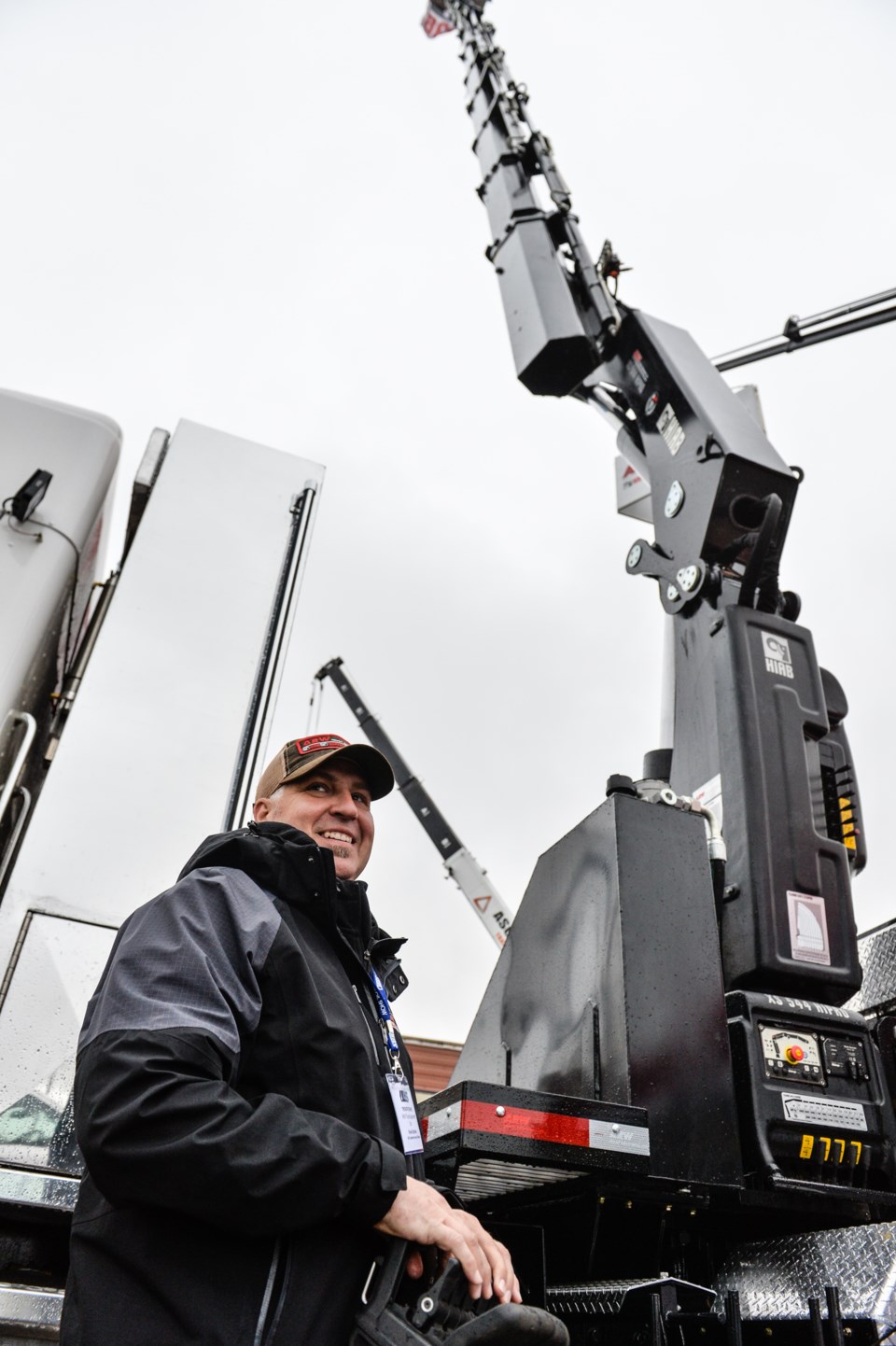Lloydminster ŌĆō JPD Enterprises is doing something that hasnŌĆÖt been very common since the oil downturn hit, namely adding new iron to its fleet, in addition to opening a new location. In Lloydminster, JPD started renting shop space six months ago.
ŌĆ£WeŌĆÖre just moving into Lloydminster. WeŌĆÖre expanding out of Elk Point,ŌĆØ said Pat Demers, who is partners with John Charlton in the operation.
The company runs continuous rod transfer units, or CRTs.
ŌĆ£WeŌĆÖve got five CRTs and five of the welders, one rod rig and one rod rig ąĪ└Č╩ėŲĄ built,ŌĆØ Demers said on Sept. 12 at the Lloydminster Heavy Oil Show.
ŌĆ£We only built one welder and one CRT in the last three years,ŌĆØ he said. They built a standalone continuous rod rig last year, which has been in service for one year.
Their working area covers all of Alberta and Saskatchewan. ŌĆ£The truckŌĆÖs got wheels. WeŌĆÖll go where the customer wants us,ŌĆØ he said.
TheyŌĆÖve been as far north as north of Peace River, and south to Turner Valley. To the east, theyŌĆÖve going to the Battlefords.
JPD has a total of 15 employees, now. ThatŌĆÖs going to change soon. ŌĆ£We are growing,ŌĆØ Demers said. ŌĆ£We will need four for the new rod rig. WeŌĆÖre looking for two employees in Lloydminster, and one in Elk Point.ŌĆØ
The new rig will be going to Bonnyville.
JPDŌĆÖs big advantage is its multipocket reels, a patented design of their own making. It allows them to carry different sized of rod if needed.
ŌĆ£The reel and method of rod repair is our patent,ŌĆØ Demers said. He noted itŌĆÖs a lot safer than the old way, hand-bombing rod. ŌĆ£We donŌĆÖt do any of that. ThatŌĆÖs what ironŌĆÖs for.ŌĆØ
ŌĆ£We just fell into it. WeŌĆÖve been doing this since August 2009. We got the patent in April 2012.ŌĆØ
When they first got into continuous rod, they had flushbys and grippers. ŌĆ£My business partner said we should come up with a multipocket reel and carry two different sizes of rod, and weŌĆÖll go work with our flushby gripper and fix rod all day,ŌĆØ Demers said.
ŌĆ£I said, ŌĆśGood idea.ŌĆÖ
ŌĆ£So we built the first reel, and we did two jobs,ŌĆØ he said. They quickly realized they could do this work without a lot of ancillary equipment.
ŌĆ£YouŌĆÖve got to be able to tuck away your ends,ŌĆØ he said. First they used a come-along, but that took forever. Then they used a winch from a quad, but now they use a hydraulic winch to pull in the rod ends.
ŌĆ£Everyone would love to do what weŌĆÖre doing, but theyŌĆÖre just not allowed to,ŌĆØ he said.
Their patent will expire in April 2032, so that gives JPD a long time to take advantage of their innovation.
Asked how things have been going, Demers said, ŌĆ£WeŌĆÖre holding our own. We havenŌĆÖt seen any big decreases since the crash, except for rates, of course.ŌĆØ
Rates were cut ŌĆ£lotsŌĆØ during the crash. They took three rounds of cuts, and a fourth year extending the third round of cuts.
However, he noted, ŌĆ£We never lost money.ŌĆØ
They laid off their pressure trucks and flushby. ŌĆ£We shut them down, because the rates were so cheap. ItŌĆÖs ridiculous how cheap the rates are. We still have the iron, and weŌĆÖre trying to sell it,ŌĆØ he said.
There were no layoffs on the rod side. The rod work is actually expanding.
Asked about the slow decline of cold heavy oil production with sand (CHOPS), he responded, ŌĆ£Because of our specialty, weŌĆÖll be okay.ŌĆØ
A big part of that is their operations mean less equipment on the lease. ╠²
╠²




